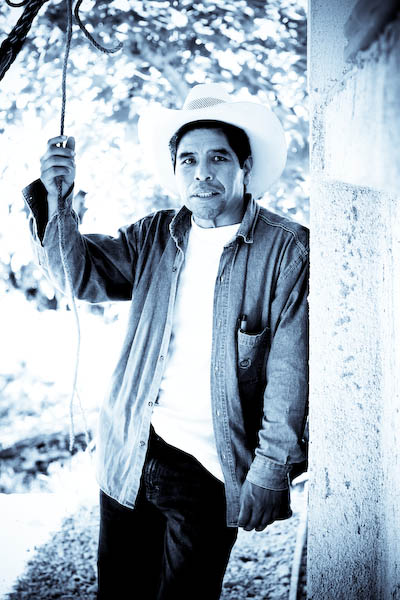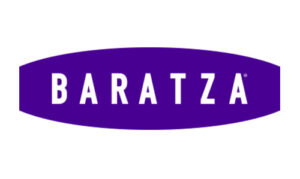
Two people died tragically recently. Two people I didn’t know anything about. Yet when I heard the news, their senseless deaths consumed many of my random thoughts and even some of my dreams. For a time, I couldn’t understand it. I mean, I read and hear about tragic deaths daily – one can’t help it with all the tragedies around the world – and I just move on, looking for the next story to read, the next thing to occupy my random thoughts.
But last week, I heard about two tragic deaths, and all I could think about for days was the sorrow and sense of loss that the people they were closest to must be feeling.
I’m talking about the tragic murders of Carlos Martin, the farm manager for Finca Vista Hermosa in Guatemala, and his second oldest son, Edwin. Two people I have never met, never even heard of before last week. Hearing of these deaths has had a profound effect on me and I’ve struggled to understand why, while also thinking about what can be done to help out Carlos’ family. As I started thinking more and more about it, I started to understand a bit why this has had an impact.
What goes on at origin – that is, at the farms that produce the coffee we all enjoy – has always been a keen interest of mine. When I first really got involved in specialty coffee, we were still climbing towards the sad pinnacle of a very bad time for farmers: the coffee crisis. It was around 2000, and I found out about farmers in places like Ethiopia, Kenya, East Timor, Colombia, Mexico and Guatemala getting barely 10 cents on a pound for parchment for all their hard labour, and things actually got quite a bit worse before they got better.
And here I was in my comfortable home in Vancouver, deciding if I should spend just a bit more discretionary income to buy a Pasquini Livia instead of an Isomac that cost $150 less. So back in 2001, I tried to learn more about origin, about the seed to cup story, and tried to share what I learned as well as I could have, but I often fell far short.
As time went on, I had many opportunities to visit origin – to visit a working coffee farm and a working coffee community – but something always seemed to get in the way. I was content to sit back, attend the occasional trade show, and find farmers that way to talk and find out about what they do and how they lived. There was even an opportunity not so long ago to visit Finca Vista Hermosa and for whatever lame reason, I passed on the chance.
And now I’ll never get a chance to meet this remarkable man Carlos, or his 16 year old son Edwin, first in the family to go to school and being groomed to take over for his Dad when it was time for Carlos to retire.
Maybe that was part of the impact this tragic news had on me. Maybe it is because here was a direct tie in the seed to cup story; maybe it’s because these deaths leave behind a wife, mother, and 11 children and siblings. Maybe it is all of that and more…
Finca Vista Hermosa’s Extraordinary Farm Manager
Edwin Martinez, Finca Vista Hermosa’s representative in the US, owns the farm along with his extended family – in fact, Martinez refers to the ownership more as a “coop ownership” than as his farm or his family’s farm. The family is mostly made up of missionaries and other people doing great work in Guatemala – building schools, setting up medical centres, helping with education, fresh water sources, electricity needs and technology access.
The farm, as Edwin Martinez put it, was a “side venture that went along with the ideals that our family strives for.” Along the way, a pursuit of quality of living, tied with quality of coffee, became prime missions on this farm, and finding Carlos Martin, a manager at a neighbouring farm, to come and help run the Vista Hermosa was a boon.
I tried, rather ignorantly, to get Edwin Martinez to do a special CoffeeGeek podcast talking about Carlos and Edwin Martin and their roles on the farm and their lasting legacies. It was ignorant of me because I didn’t take into account how recent the deaths were and what kind of emotional impact it would have on Martinez. Carlos and his son (and family) weren’t just workers on the farm to the Martinez clan – no, they were much more than that. Carlos was a trusted advisor, a friend, a mentor and part of the extended family to Martinez. The pain was all too real in his voice when I did get a chance to talk to him about this sad event. But I feel very fortunate I had the opportunity, because I’ve learned so much about this wonderful man and his son, taken too soon from this earth.
Carlos Martin was 100% Mayan which, if you don’t know the situation in Guatemala, is rather unique for a farm manager to be. There’s a certain amount of racism and second-class treatment towards Mayans in Guatemala. Martin was often the victim of such racism, often being questioned for driving a vehicle (people assumed he stole it), dealing with money and banks (“Mayans shouldn’t be in here”), even when working with non-Mayan seasonal workers on the farm. He was often challenged, simply because of his race.
A measure of a person is how they deal with these kinds of situations. Carlos Martin overcame many of these challenges by earning respect the hard way, something he had to do most days. He lead by example, and it is safe to say he was the hardest, most dedicated worker that Vista Hermosa had. He spoke both Mayan and Spanish, and had amazing communication skills that went beyond languages that put people at ease, garnered trust and respect, and perhaps most importantly, helped people to learn. Many managers of farms in Central America tend to be insular – setting up their positions in such a way that they make it quite clear there’s some things only the manager can do or even know about, thus creating this additional class structure between workers and managers. Carlos Martin was not that kind of manager.
“Many managers are limited in what they achieve because they are afraid to let go of their managerial duties.” Martinez wrote on his blog. “Carlos was good at teaching, letting go and allowing people to make mistakes knowing that he too had made his fair share. With early morning jobs beginning at 5:00 a.m. and de-pulping sometimes running until 2:00 a.m. delegating was not an option. Carlos knew if he made himself obsolete by training others to do his job that it would be good for everyone (at the farm).”
“While some hold the reins tight in the interest of job security Carlos proved to move far beyond what his job called for.” Martinez continues. “He was a forward-thinking innovator that was aggressive in getting things done but also a tender and sensitive listener that was eager to hear others’ opinions.”
Being Mayan had one particular benefit for both Martin and the Hermosa farm – most seasonal workers in Guatemala that pick coffee are Mayan, and sometimes Ladino peoples, and as I mentioned, it’s extremely rare for their boss to be of the same race. Hermosa tended to attract some of the best, most hardworking and most knowledgeable seasonal workers, not because they paid more than average or had better living conditions (though both cases are also true) but because it was known that Hermosa’s manager was “one of the people” who could speak their language and communicate with them one on one, as someone who understood their life and plight. Where other farms in Guatemala today have a shortage of workers during the picking season, Vista Hermosa typically turned away three or more times the amount of workers they hired, because they simply didn’t have enough positions for all of them to fill.
Martinez talked to me about how Carlos was a local folk hero in his home town (which is mostly Mayan) whenever he would go back to visit. Here was this Mayan native who not only worked and toiled on a coffee farm, but managed it and made it successful. Here was a man who overcame so many hurdles and had this position of respect and power. And as Martinez put to me, Carlos always had a humble pride in this, so humble that it was difficult for him to accept or acknowledge, feeling the admiration of his peers.
“Carlos was quite possibly one of the happiest finca managers in the world.” Martinez wrote on his blog. “When he went back to his home town to visit he was treated like royalty because people knew that he had a good job where he did great work and in turn he was paid well for it.”
Carlos Martin was also keenly aware of the coffee he helped to produce and how it was being received around the world. Back in 2004, Vista Hermosa’s coffee finished in the top twelve in the precursor to Cup of Excellence, and in 2007, finished seventh in the Cup of Excellence: Guatemala and garnered an astronomical $8.05 per pound in the auction, or close to $20,000 for 16 bags of coffee. Those were standout achievements that Martin took part in bringing about by growing, picking and producing some fantastic coffees, and to read about it in national newspapers in Guatemala not only brought pride to him for his work, but urged him to continue improving and making the coffee they grew even better.
Cup of Excellence awards notwithstanding, Carlos took just as much pride in knowing even the most minor aspects of how his coffee fared. “Few things brought him more joy to know the level of appreciation people had for the fruit of his labor.” Martinez said. “His grin was ear to ear when told about where Finca Vista Hermosa coffee ended up and that people asked for it by name and even asked and cared about him. He had this humble pride and dignity knowing that he was producing a fine coffee, and that people recognized it as such.”
After my long and emotional talk with Edwin Martinez about Carlos, and after reading Edwin’s blog entry on the man, I really gained good insight into how coffee farms may typically work in Central America, and how this farm is different, and how special a person Carlos was. I realised that with Carlos Martin, here was this great “coffee man” in the most modern sense of the word. I realised just how much pride he took in the product of his labour. I realised he was one of those great leaders, leading by example and humble origins instead of by rule or force or intimidation or class structure. I realised he demonstrated this great passion for producing amazing coffee. He wasn’t fearful of, as Edwin said “making himself obsolete” by training people the right way with good knowledge – instead, he knew it made the product better, and that was the most important thing.
I’ll put it point blank here: It’s specifically because of people like Carlos Martin that you and I get to enjoy some amazing coffees. Without special people like this, not just working the earth but working it well, always learning and always sharing their knowledge – these are the reasons why you and I get to have these absolutely singular moments enjoying great coffee.
Now he’s gone, and his son, who was being groomed to take over as manager one day, is gone with him, because of senseless murders by highway bandits who attacked and killed the two of them while they were bringing the payroll to the farm to pay the workers. They leave behind a loving wife and mother Juana, and 11 other children, 7 of them under the age of 14.
And that’s when it hit me and I fully realised why this tragic story had such an impact on me. I’m always thankful in spirit to the hardworking, savvy, intelligent and honest people who bring us such great coffees – those who are the unsung, and far too often anonymous people working the earth, growing the best product they know how to. 99.9% of the time, they are just as anonymous to me as they are to you. And last week, I found out about one of them, and found out about this profound, senseless loss his family has to now endure. It hit home.
Juana Martin and her children face some tough roads ahead. As Martinez told me, last week his father gave Juana some money to tide her over in the short term, and Martinez thinks it may have been the first time she ever held cash. I know that Martinez and his family will be doing all they can to help out, but as a community, we can help out too.
While it does nothing to ease their emotional loss, we can help this family many ways – by praying for them, by sending condolences and wishes so they know others sympathise with them, and by donating money to help ease some future financial burdens, and possibly even create situations for them. Edwin Martin, Carlos’ son, was the first of the Martin family to go to school. It would be such a fantastic legacy if somehow we could help some of his other children take the same path. Maybe one day, one of Carlos’ sons or daughters will carry on in the family tradition and become a Finca manager, well-respected by their coworkers, and developing some fantastic coffees for us to enjoy.
























